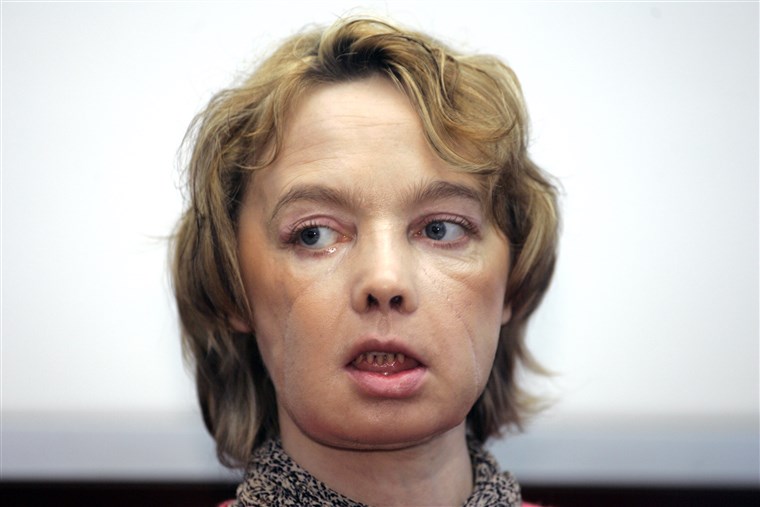
From unideal circumstances to the “ideal” facial transplantation candidate: Lessons from visible difference research on the importance of patient-focused psychological screening and assessment
Dr Matthew Ridley (PhD, CPsychol.)
To date there have been close to fifty face transplants conducted around the world and yet the procedure still remains experimental, with no widely agreed upon patient screening or assessment guidelines. The passing of the first face transplant recipient, Isabelle Dinoire, in 2016 under somewhat conspicuous circumstances as to her mental health, well-being, and experiences with the transplant, has led to questions about her psychological appropriateness as a recipient (and of the ethics of facial transplantation in general). Subsequently, the same old questions remain from 2005 when Isabelle was paraded to the world’s media. And they centre around the psychological constituents of an “ideal” candidate.

The ideal candidate?
The notion of the “ideal” face transplant candidate was initially constructed by surgical teams in line with their needs. More recently – and with greater influence from psychologists – it has been said that the ideal patient would need to be functionally impaired and psychosocially limited enough to warrant the risks of the surgery. At the same time, they would need to be psychologically resilient enough to deal with the challenging road that follows the procedure. This paradoxical image of the ideal candidate highlights the sheer complexity involved in identifying appropriate patients for facial transplantation. Especially since the risks of the surgery, and psychological challenges that follow, are many.
There has now been some research conducted that comprises follow-up psychological assessment, which has found reductions in depression and improvements in quality of life. But these results are solely based on a single female face transplant patient over the course of a fairly short-term follow-up period (3 years). As a result, we are still none the wiser as to the long-term psychological implications of facial transplantation. Arguably more pressingly, we do not know the psychological profile that would make for an appropriate candidate, or even the components of one. This is something that would help to inform screening and assessment. For example, further data from more patients across a longer follow-up timeframe would help inform a much-needed risk (e.g., the side effects of immunosuppression medication) versus benefit (quality of life?) assessment prior to proceeding with a face transplant.
Despite the lack of reliable data, we do know about some of the psychological challenges a face transplant patient will face following the procedure. These include the chronic fear and anxiety of rejection, which is possible at any time, and the side effects of immunosuppression medication, chiefly the likelihood of the reduction of life expectancy. On these, it could be said that Isabelle Dinoire unfortunately stands as a case example of the potential pitfalls of inadequate psychological screening and assessment. By contrast, Carmen Tarleton could perhaps be the case example of a “resilient” face transplant recipient.
As covered in the preceding blog post, in her talk at the Congress of Future Medical Leaders (2018), Tarleton outlined the psychological tools that have contributed to her coping with facial transplantation (and facial difference generally). These included hope, meaning-making, and the ability to bust the beauty myths of modern society (“live from the inside out”). However, at the same time, the persistent and enduring nature of the challenges with which facial transplantation presents means that there are no clear wins and losses; no quick, straightforward, one-off fixes, whatever the early proponents of facial transplantation might have you believe. That is the case for Carmen as much as it was for Isabelle Dinoire.

Lessons from visible difference research
Prior to joining the AboutFace team, I conducted my PhD at the Centre for Appearance Research (CAR, The University of the West of England) a world renowned (and the world’s largest) research group specialising in the role of appearance and body image in people’s lives. My PhD focused on resilience among individuals with cleft lip and/or palate. Cleft lip and/or palate is a common congenital condition that results in facial difference and involves an extensive surgical treatment regime. As such, while a different context to facial transplantation, there are commonalties. Therefore, there are also some insights to be had from research on other visible difference groups.
Visible difference research concerning coping with facial difference and associated surgery is particularly relevant to the context of facial transplantation. Research indicates the importance of realistic expectations about the surgery. It also demonstrates that individuals with a visible difference – spanning both congenital (e.g., cleft lip and palate) and acquired (e.g., burns injury) – can face multiple and often persistent challenges. These challenges may include mental health (e.g., anxiety, depression), negative body image, low self-esteem, and negative psychosocial experiences (e.g., bullying, stigmatisation).
However, research also shows that, contrary to societal assumptions, the extent of the visible difference does not predict adjustment. That is, an individual with more profound facial difference will not necessarily fare worse than another person with less facial difference. Longitudinal research (i.e., measures taken at various points over a sustained period of time) conducted by CAR, that recruited participants with a range of visible differences causing conditions, found that adjustment was better explained by psychological factors such as optimism. This suggests that resilient individuals find ways to move forward positively with, and adjust to, their new face.
These findings taken into the context of facial transplantation could then suggest that the most resilient individuals – those who would be most prepared for the adversities that await following the procedure – may well never then be in the position to receive facial transplantation in the first place. In some cases, it may be that those who think they need facial transplantation the most are the least prepared for the challenges that follow. This won’t of course always be the case, and perhaps Carmen Tarleton is an example for that – as someone who has now gone through two face transplants (one re-transplant) and is seemingly striving to move forward positively and to make the most of her life.
Patient-focused screening and assessment
So, despite prevailing societal views and assumptions of the need to look “normal”, particularly in this modern society that prioritises appearance as the most important thing, reverting to a more “normal” appearance is not a simple, quick, or straightforward fix. It has been discussed that those individuals resilient enough to withstand the psychological challenges associated with facial transplantation would not put themselves in the situation in the first place (and thus disputing the notion of an appropriate candidate altogether). However, the seemingly different plights (and approaches) of two face transplant recipients, Isabelle Dinoire and Carmen Tarleton, shows the importance of psychological screening and assessment in the facial transplantation process.
AboutFace intends to explore facial transplantation in the broader context of facial differences in general and the more comprehensive evidence base on visible difference groups discussed here is case in point for this approach. From visible difference research we know that the extent of the facial difference does not predict how well a person will cope. This highlights the need for subjective and individualised approaches to be integrated into the screening and assessment of prospective face transplant patients. AboutFace aims to bring about a revised psychological framework that incorporates more of a patient-focused approach.
